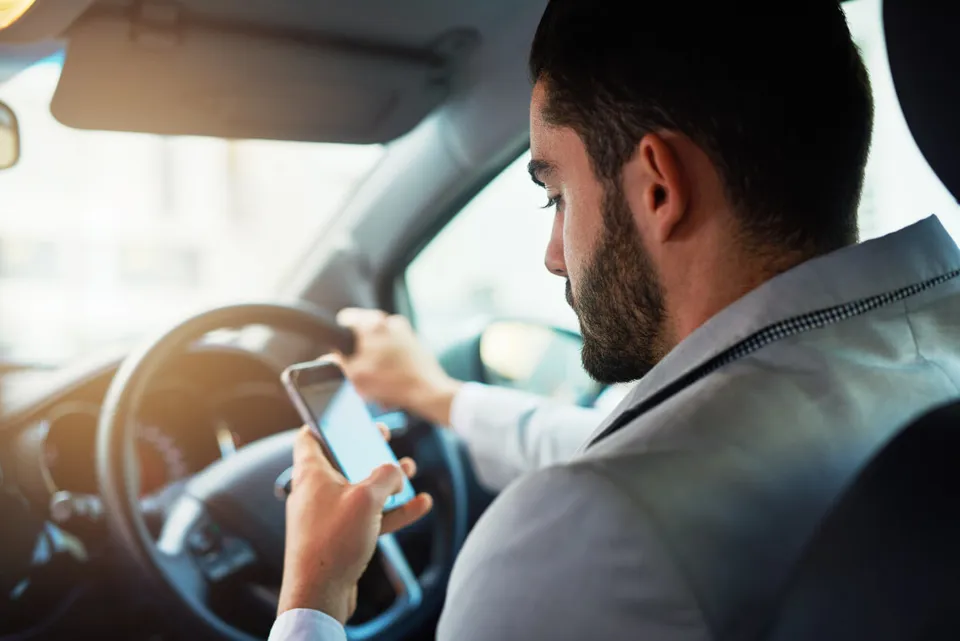A quarter (25%) of drivers admit to making or receiving voice calls illegally while driving, a figure which rises to 49% of those aged 17 to 24.
More worrying still, almost a third (30%) of under-25s admitted to video calling while driving, up from 17% in 2022.
The RAC research, released to coincide with the Government first making the illegal use of a handheld phone an endorseable offence 17 years ago, shows that their use is still rife.
The penalty for using a mobile phone illegally while driving was increased to a £30 fixed penalty to £60 and three points in 2007.
The use of handheld devices while behind the wheel was first banned in 2003, before the tougher punishment was introduced.
It was increased to a £100 fine in 2013, before being hiked further to six points and a £200 fine in 2017.
The Government changed the law to cover any use of a handheld phone while driving in 2022.
RAC road safety spokesman Rod Dennis said: “It’s more than 20 years since it first became illegal to use a handheld phone while driving, and 17 years since the offence was first punishable through penalty points on drivers’ licences.
“Yet despite the penalties having since doubled to six penalty points and a £200 fine seven years ago, it’s clear far too many drivers are still prepared to put lives at risk by engaging in this dangerous practice.”
The RAC suspects that the main reason for this is the lack of enforcement which means there is little fear of being caught.
The new type of technology captures footage of passing motorists. The images are processed using artificial intelligence (AI) to analyse whether the motorists could be using a handheld mobile phone or drivers may be without a seat belt.
The images are then passed to police for consideration on any action to be taken.
Dennis said: “As it’s impossible to have a police officer on every street corner, we urge more police forces to begin trialling camera-based technology that can automatically detect drivers breaking the law in this way.
“We know from our research that drivers are broadly supportive of cameras being used for this purpose.”
He added: “Without the dial being turned up on enforcement, there’s every chance we will never bring about the change needed to curb this behaviour.
“Ultimately, we have to make using a handheld phone at the wheel as socially unacceptable as drink-driving.”





















Login to comment
Comments
No comments have been made yet.